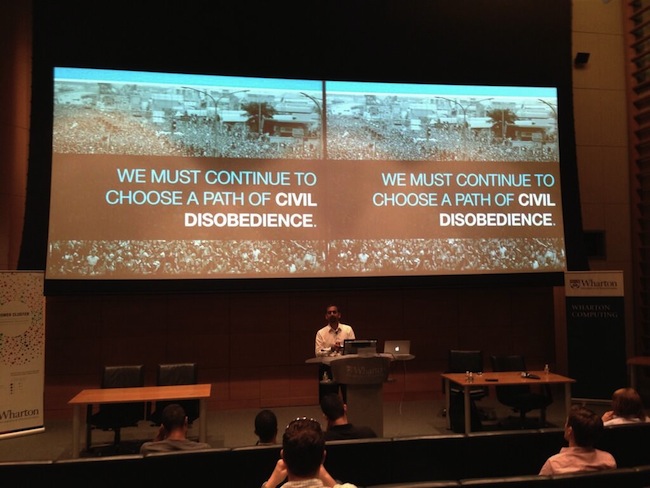Anil Dash offered a call to action at this year’s Wharton Web Conference: Continue on a path of civil disobedience.
Hundreds of thousands of people upload copyrighted videos to YouTube, said Dash, a New York City-based blogger and entrepreneur. They defy the law in public and with their names attached to the act. That’s the kind of civil disobedience needed to “make the web we deserve,” he said.
What’s wrong with the state of the web right now?
For one, the rights that we have on websites like Facebook or Twitter are not the same rights that we have in the non-web world, Dash said. Before you’re allowed on a social network like Facebook, you have to accept the terms of service, essentially a set of rules written by Mark Zuckerberg and company about how you can act on the site.
“We don’t have First Amendment rights on Facebook,” Dash said. “That’s not a dystopia. That’s today.”
This can become problematic, he said, when people become dependent on these corporation-owned platforms. For example, after Hurricane Sandy, organizations were using Facebook to distribute information about where people could get lifesaving services, Dash said. That meant that people had to accept Facebook’s terms of service in order to get that information.
So how can we fight back? Civil disobedience, Dash said, and speaking up when we’re not happy. It’s true that there is a trade happening: users get free access to Internet tools like Facebook and in exchange offer their data and complicity in this structured universe. Dash just says if the utilities of future communications will be for-profit companies, we ought to demand more.
“A the end of the day, [Internet corporations] all buckle when we make them look bad,” he said. “They have no spine. They just have lawyers.”
Read more on Dash’s blog: specifically this post (with video) and this post.







